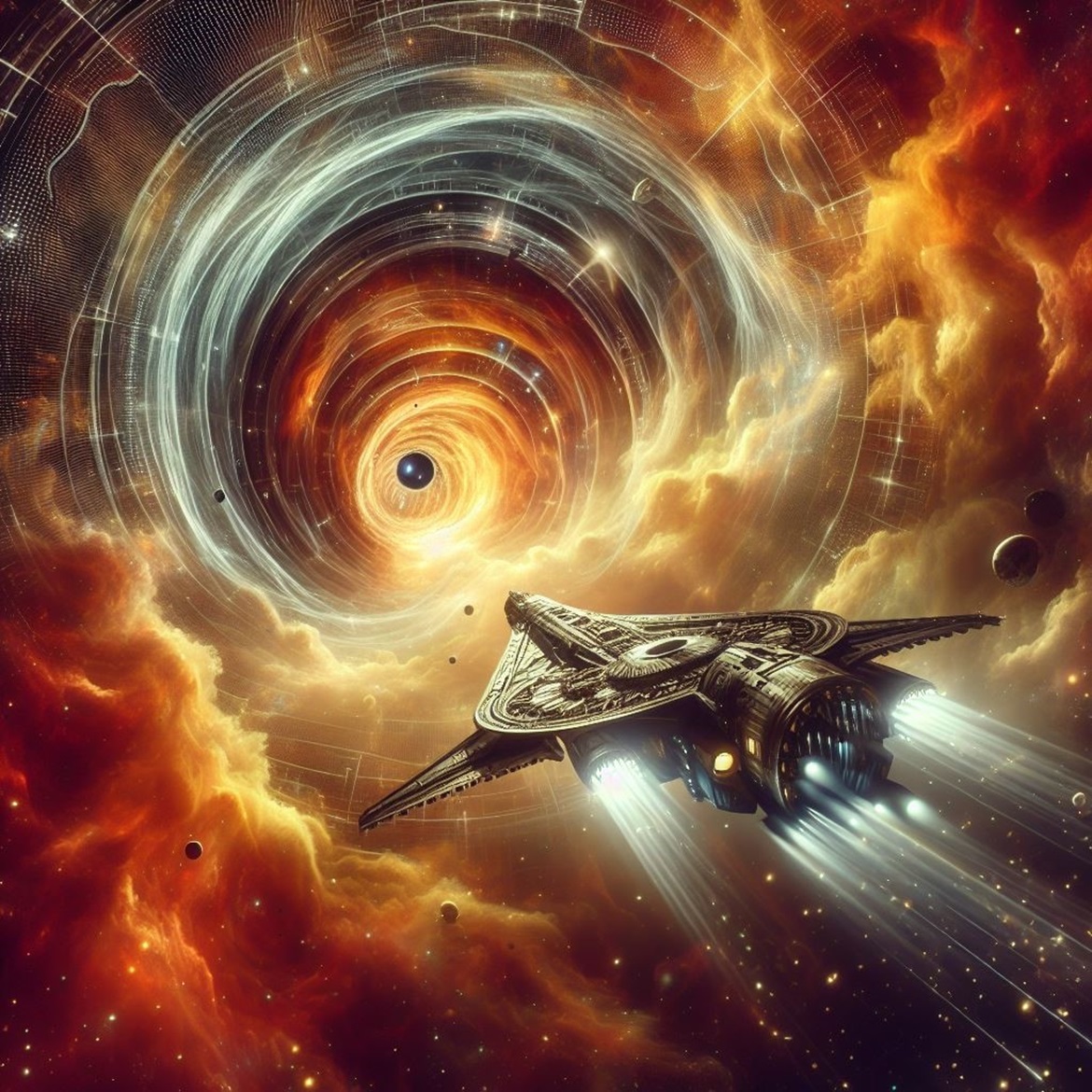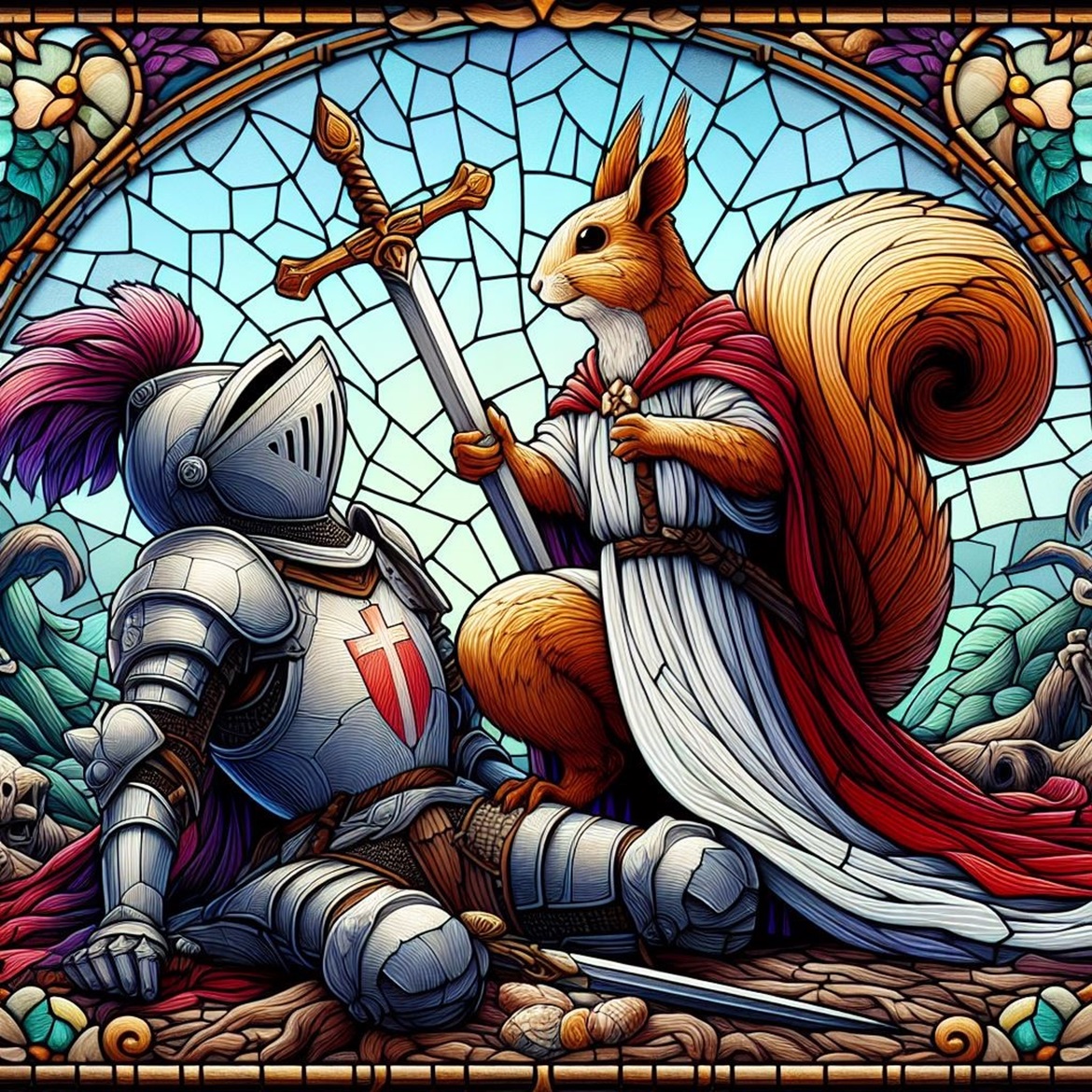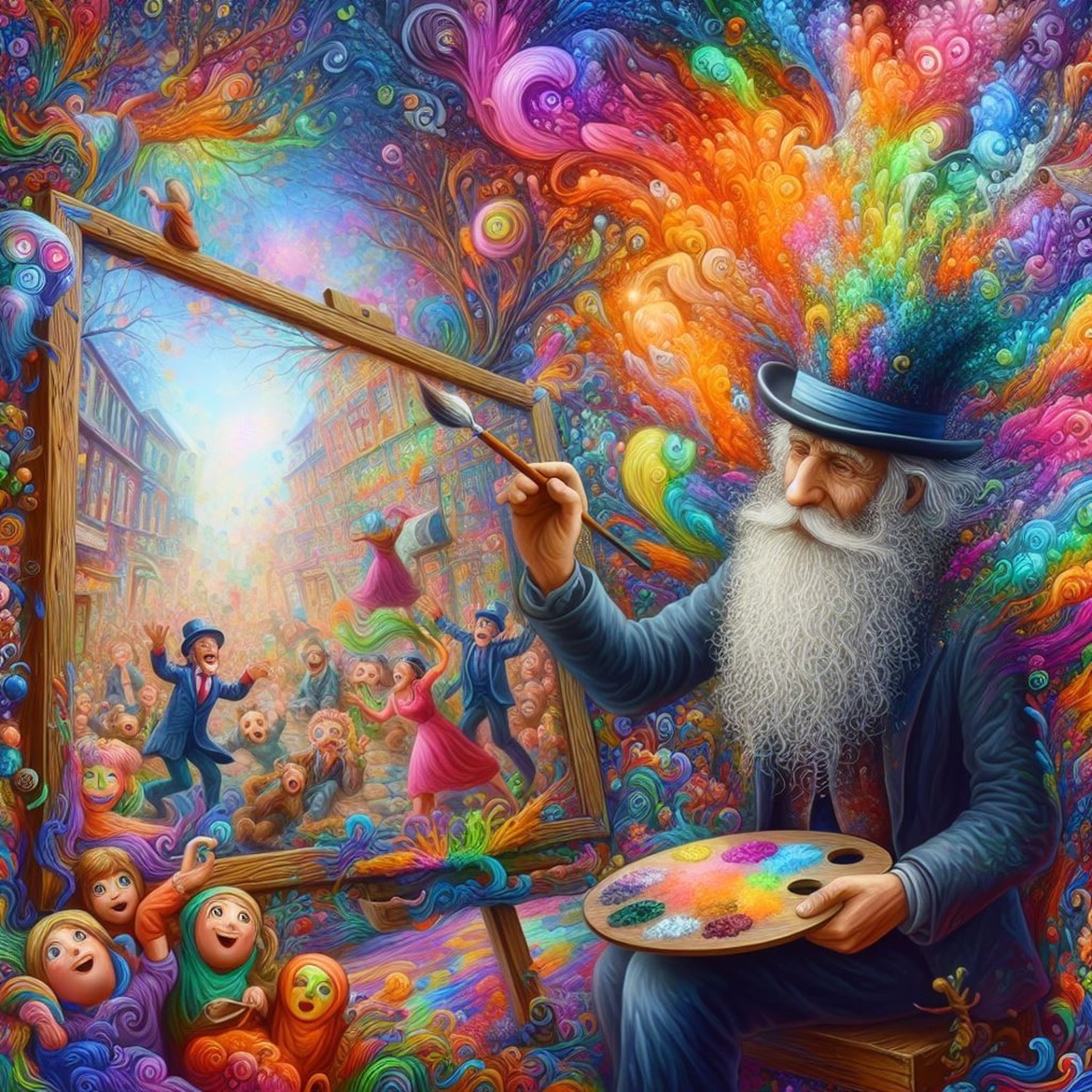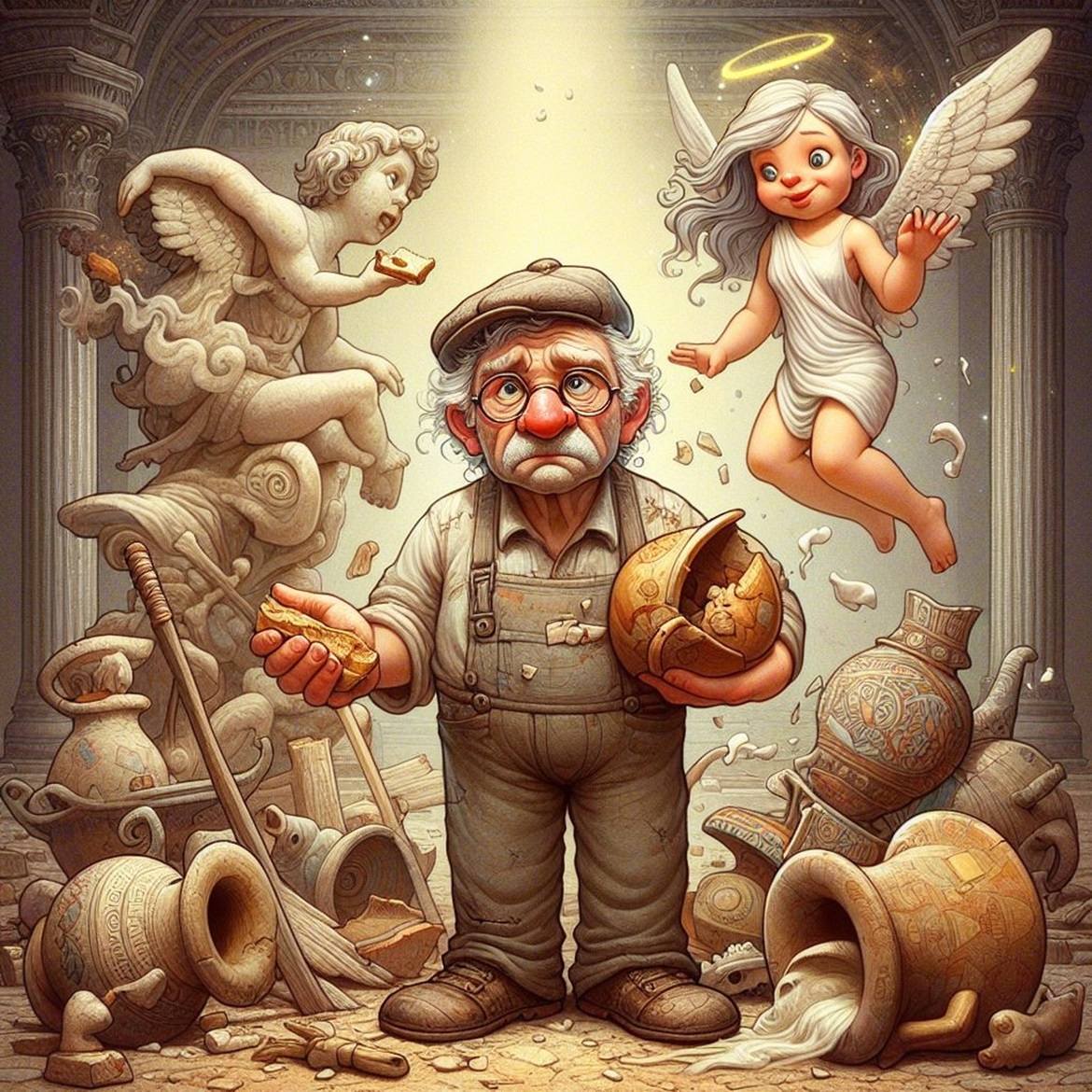In the grand tapestry of the universe, where stars are mere stitches glimmering with ancient light, our tale finds its thread in a place far from the cozy confines of Earth. The S.S. Euphoria, a spaceship with the sleekness of a polished shoe and the size of a small metropolitan city, sails silently through the cosmos. Aboard this gargantuan vessel, nestled among a crew of the finest astronauts from varying corners of the galaxy, was Stanley Glass.
Stanley, a man whose usual habitat was a cluttered one-bedroom apartment adorned with takeout boxes and unfulfilled dreams, found himself inexplicably waking to the hum of the S.S. Euphoria’s life support systems. He blinked against the harsh artificial light, wondering if perhaps he’d ordered a pizza with toppings so adventurous they contrived a vivid hallucination.
“Good morning, Stanley,” chimed a voice, smooth and synthetic. It belonged to AIDA, the ship’s artificial intelligence, tasked with tasks ranging from navigating wormholes to making a decent cup of coffee.
“Where am I?” Stanley mumbled, his voice a mixture of bewilderment and morning breath.
“You are aboard the S.S. Euphoria,” AIDA replied, with the patience of a saint, if a holy figure could manage digital spreadsheets.
“I must be dreaming,” Stanley concluded, a conclusion as shaky as his current comprehension of the situation.
The ship, a marvel of engineering and a mystery to Stanley, carried its crew on a mission of monumental importance: to find a new coffee shop. Not just any coffee shop, mind you, but one rumored to exist at the nexus of the universe, serving brews that could alter the fabric of reality itself—or at least drastically improve one’s morning routine.
Stanley, though initially disoriented, couldn’t deny the pull of curiosity. The thought of a cosmic latte was enough to propel him out of bed and into the ship’s labyrinthine corridors.
The crew, a motley assembly of beings with more eyes, limbs, and unfathomable features than Stanley could fathom, welcomed him. Each had their story, a snippet of the grand narrative of the cosmos. There was Z’lar, a being composed entirely of energy, lamenting the lack of outlets on the ship; Tiff, a Martian with a penchant for practical jokes; and Captain Reynolds, a seasoned astronaut who wore the burden of command as lightly as his vintage Hawaiian shirts.
As they neared their destination, an air of anticipation enveloped the S.S. Euphoria. Stanley found himself growing fond of his peculiar companions, their idiosyncrasies weaving into the fabric of his own story.
However, as with all tales that reach for the stars, turbulence is as inevitable as the pull of gravity. The S.S. Euphoria, in its gallant quest for the ultimate brew, encountered a nebula not marked in any star charts. Its colors twisted in the void, a psychedelic swirl that seemed to dare the ship to enter.
Captain Reynolds, whose experience with cosmic anomalies was as extensive as his collection of tropical shirts, ordered a cautious approach. “Remember, crew, curiosity didn’t kill the cat; it was lack of preparation. And possibly allergies,” he announced, his voice a beacon of calm in the mounting storm.
Stanley, clinging to the nearest stable object as the ship shuddered, wondered if his life insurance covered interstellar exploration mishaps. It was a fleeting thought, quickly swallowed by the more immediate concern of not becoming part of the nebula’s eclectic color scheme.
AIDA, her voice a constant in the chaos, navigated the S.S. Euphoria with precision. “Hold tight, Stanley. The best coffee shops are always hidden in the most unexpected places,” she assured him, her tone betraying a hint of excitement. Or as close to excitement as her programming allowed.
The ship emerged on the other side of the nebula unscathed, save for a few new scratches and a crew whose adrenaline levels could rival the caffeine they sought.
Before them lay the coffee shop, a quaint establishment floating in the void, with a sign that read: “The Cosmic Brew – Where Dreams Converge.”
The crew’s jubilation was palpable as they anchored the S.S. Euphoria and made their way to the café. Stanley, stepping into the establishment that was the source of legends, found himself oddly at home. The aroma of coffee, rich and inviting, filled his senses, grounding him in the moment.
Each crew member ordered their beverage, tales of their journey exchanged with the barista, a being whose form seemed to shift like the nebula they had traversed.
Stanley, receiving his cup, took a sip and paused. The coffee, transcendent in its complexity, sparked a realization within him. Each sip was a memory, a moment from a life he couldn’t quite grasp. The laughter of friends not present, the embrace of loved ones faded into the ether.
As the crew celebrated, Stanley felt a tug, a whisper from the recesses of his mind. The café, the mission—it all felt like a dream within a dream. The faces of his crewmates blurred, their laughter echoing as if from a distant shore.
Then, silence.
Stanley awoke, not to the sterile light of the S.S. Euphoria, but to the soft glow of a hospital room. Tubes and wires formed a lifeline, anchoring him to this reality. At his bedside, a woman with tear-streaked cheeks held his hand, her grip a testament to hope.
“You’ve been in a coma, Stanley,” she whispered, her voice a melody long forgotten.
The adventures in space, the quest for the cosmic coffee shop, the bonds formed in the face of the unknown—all a tapestry woven from the threads of his imagination, fueled by the stories he loved.
Stanley’s journey, it seemed, was not among the stars, but within the uncharted depths of the human spirit. The S.S. Euphoria, his loyal crew, the cosmic café—all figments of a mind refusing to succumb to the silence of unconsciousness.
Yet, as Stanley grappled with the weight of his awakening, a smile found its way to his lips. For while reality may anchor him, his spirit had soared among the stars, touched the fabric of the universe, and returned with a truth as profound as the cosmos itself.
Dreams, those ethereal threads that weave through the slumbering mind, hold the power to unlock worlds beyond the confines of reality. In dreams, we are not bound by the laws of physics or the constraints of time. We are free to explore, to discover, and to connect with the essence of our being.
Stanley, surrounded by the tangible love of those who had waited for his return, understood that his journey had just begun. The universe, with its infinite mysteries and boundless wonders, was not out there, among the stars. It resided within him, within all of us, a cosmic brew of potential waiting to be explored.
And as for the S.S. Euphoria and its crew of misfits? They would sail again, in the dreams of a man whose spirit knew no bounds, a testament to the enduring power of hope, imagination, and the unyielding quest for that perfect cup of coffee.
In the end, Stanley’s adventure—a kaleidoscope of humor, originality, and philosophical musings—offered not just an escape, but a reflection on the resilience of the human condition. In the face of adversity, within the silence of a coma, the mind can build universes, crafting stories that resonate with the universal yearnings of the heart.
And perhaps, that is the greatest magic of all—the ability to dream, to hope, and ultimately, to awaken anew.
The surprise twist of Stanley’s reality, far from diminishing his experiences, only enriched the tapestry of his life, a reminder that even in the darkest nights, stars can be born. For in the realm of dreams, we find not just escapism, but the keys to unlock our deepest desires, fears, and loves.
Stanley Glass, once adrift in a sea of stars, found his anchor in the love that waited for his return. And in the quiet moments that followed his awakening, he knew that no matter where life’s journey took him, he would always have a crew, a mission, and a universe of possibilities, nestled safely within the confines of his own mind.
The cosmos may be vast and unknowable, but the human heart, with its capacity for love, imagination, and resilience, is infinitely more so. And it is there, in the heart, where the most remarkable adventures are born and reborn, in the perpetual cycle of dreaming and awakening that defines our existence.




